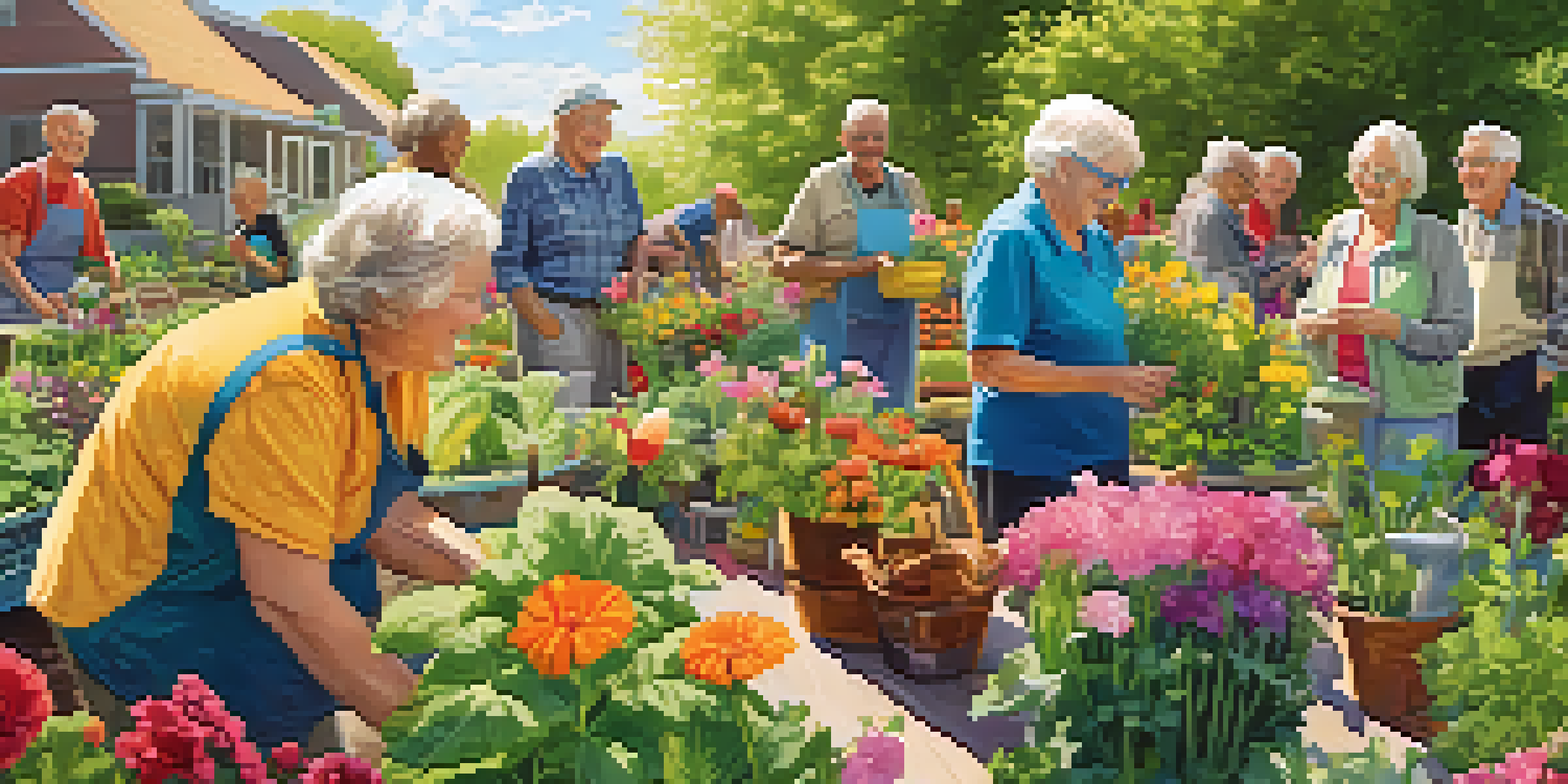Social Connections: Their Importance in Healthy Aging Process

Understanding the Link Between Social Connections and Aging
As we age, the importance of maintaining social connections becomes increasingly clear. Research shows that strong social ties can lead to better health outcomes, enhancing both physical and mental well-being. It’s like having a safety net; the more connections you have, the more support you can rely on throughout the aging process.
The greatest discovery of my generation is that a human being can alter his life by altering his attitude.
Conversely, social isolation can negatively impact health, leading to feelings of loneliness and depression. Imagine being on a road trip without any company; the journey can feel long and daunting. Similarly, aging without meaningful connections can make the experience feel isolated and overwhelming.
Related Resource
Understanding this connection encourages us to prioritize relationships, whether through family, friends, or community. Building and nurturing these ties is essential for a fulfilling and healthy life as we age.
The Health Benefits of Strong Social Ties
Engaging with others doesn't just lift your spirits; it can also improve your physical health. Studies suggest that older adults with robust social networks tend to have lower blood pressure, reduced risk of heart disease, and even longer lifespans. Think of social connections as a sort of natural medicine; their benefits extend far beyond emotional support.

Moreover, social interactions can stimulate cognitive functions, keeping our minds sharp. Activities like playing games or sharing stories with friends can help maintain mental agility, similar to how exercise keeps our bodies fit. The brain thrives on engagement and conversation, making social connections crucial for cognitive health.
Social Connections Boost Health
Strong social ties enhance both physical and mental well-being, leading to improved health outcomes as we age.
Ultimately, nurturing these connections can lead to a healthier, happier life. By recognizing the profound impact our relationships have on our health, we can take proactive steps to build and maintain them.
Overcoming Barriers to Social Engagement
As we age, various barriers can arise that make it challenging to stay socially connected. For instance, mobility issues or health concerns might limit one’s ability to attend gatherings. However, it's important to remember that social engagement can take many forms, from phone calls to virtual meet-ups; options are available to keep connections alive.
Friendship improves happiness and abates misery, by the doubling of our joy and the dividing of our grief.
Addressing these barriers is crucial for enhancing social ties. Community programs, local clubs, and even social media can serve as platforms for older adults to connect with others. Visualize community centers as vibrant hubs where friendships blossom, offering a sense of belonging and support.
Related Resource
By being proactive and seeking out resources, seniors can overcome these challenges and foster meaningful relationships. The effort put into maintaining social connections is well worth the benefits they bring.
The Impact of Technology on Social Connections
In today’s digital age, technology plays a significant role in fostering social connections, especially for older adults. Video calls, social media, and messaging apps provide opportunities to stay in touch with loved ones, no matter the distance. Embracing these technologies can feel like opening a window to the world, allowing connections to thrive.
However, there can be a learning curve when it comes to using technology. Some seniors may feel intimidated or unsure about navigating digital platforms. But with patience and practice, they can become adept at using tools that enhance their social lives.
Technology Bridges Social Gaps
Embracing technology can help older adults maintain relationships and foster connections despite physical distance.
Ultimately, technology can be a bridge to maintaining relationships, rather than a barrier. By integrating these tools into daily life, older adults can cultivate a vibrant social network.
The Role of Community in Social Connections
Communities play a pivotal role in fostering social connections among older adults. Local organizations, clubs, and volunteer opportunities often provide platforms for seniors to meet new people. Picture a community garden where individuals come together, not just to plant flowers, but to cultivate friendships.
Participating in community events can also enhance a sense of belonging and purpose. Whether it’s attending a local fair or joining a book club, these activities can spark conversations and lead to lasting relationships. It’s like being part of a larger tapestry, where each interaction adds color and richness to life.
Related Resource
By engaging with their communities, seniors can create a support system that benefits their overall well-being. These connections are vital as they navigate the aging process.
The Emotional Benefits of Social Connections
Social connections do more than just improve physical health; they significantly enhance emotional well-being. Having friends and family to share experiences with can lead to increased feelings of happiness and security. Think of social interactions as the sunshine that nurtures our emotional garden; they help us bloom and thrive.
Conversely, isolation can lead to feelings of sadness and anxiety. The emotional weight of loneliness can be heavy, making it crucial to actively seek out connections. Just as we water plants to keep them healthy, nurturing our relationships is essential for emotional vitality.
Community Fosters Meaningful Ties
Engaging with local communities provides essential platforms for older adults to build friendships and a sense of belonging.
Recognizing the emotional benefits of social ties can inspire individuals to prioritize their relationships. The joy of shared moments and the support of loved ones are invaluable as we navigate the complexities of aging.
Practical Tips for Building Social Connections
Building and maintaining social connections doesn't have to be overwhelming. One practical tip is to schedule regular catch-ups with friends or family, whether in person or virtually. Think of it like setting a weekly dinner date; having that commitment can make it easier to stay connected.
Another effective strategy is to join clubs or groups that align with personal interests. Whether it’s a knitting circle or a hiking club, shared activities provide natural opportunities for socializing. Imagine the bonds formed over a shared love of gardening or painting; these common interests can spark friendships.

Lastly, don’t hesitate to reach out to neighbors or community members. A simple hello or a shared cup of tea can lead to meaningful conversations and relationships. By taking small, intentional steps, anyone can strengthen their social connections.